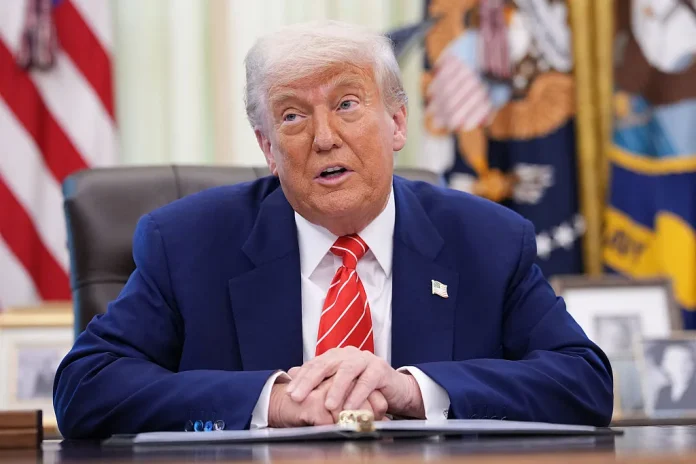Washington, July 23: In a controversial move that mirrors his first presidential term, U.S. President Donald Trump has announced the country’s second withdrawal from the United Nations Educational, Scientific and Cultural Organization (UNESCO), criticizing the agency for promoting what the White House described as a “woke” and “divisive” global agenda.
The withdrawal, which will take effect at the end of 2026, marks a continuation of Trump’s “America First” foreign policy approach, which has consistently targeted multilateral organizations such as the United Nations, NATO, the Paris Agreement, and the World Health Organization.
White House spokesperson Anna Kelly said UNESCO backs causes that “are totally out-of-step with the commonsense policies that Americans voted for.” The State Department echoed the sentiment, citing UNESCO’s past decision to admit Palestine as a member state and accusing the agency of harboring an anti-Israel bias and pushing a “globalist ideological agenda.”
UNESCO Director-General Audrey Azoulay expressed deep regret over the U.S. decision, noting that while expected, it comes at a time when the organization has made considerable progress toward depoliticization and global cooperation. “These claims contradict the reality of UNESCO’s work, especially in Holocaust education and the fight against antisemitism,” Azoulay said.
French President Emmanuel Macron voiced strong support for UNESCO, calling it a “universal protector of world heritage” and affirming France’s continued commitment to the agency despite the U.S. pullout.
Israel welcomed the move, with Foreign Minister Gideon Sa’ar thanking Washington for its “moral support and leadership.” Israel’s ambassador to the U.N., Danny Danon, accused UNESCO of a “consistent misguided anti-Israel bias.”
Meanwhile, critics of the decision—including U.S. Senator Jeanne Shaheen, a senior Democrat—called it “short-sighted” and warned that it opens the door for increased Chinese influence. After Trump’s initial UNESCO exit in 2017, China became the agency’s largest financial contributor. Shaheen said the decision undermines U.S. leadership in global cultural and educational affairs.
Despite past tensions, UNESCO remains a key U.N. body known for its designation of World Heritage Sites such as the Grand Canyon, the Statue of Liberty, and the Egyptian pyramids. The U.S., a founding member in 1945, has had an on-again, off-again relationship with the agency—first leaving in 1984 under President Ronald Reagan, rejoining in 2003, and then withdrawing again in 2017 before President Joe Biden re-entered in 2023.
UNESCO currently lists 26 U.S. sites on its World Heritage List, recognizing them as places of “outstanding universal value.” The future of U.S. participation in these designations and other UNESCO programs now remains uncertain.
Trump’s U.N. ambassador nominee, Mike Waltz, defended the decision and reiterated the administration’s desire to reform multilateral institutions. “We can make the U.N. great again,” he said.

